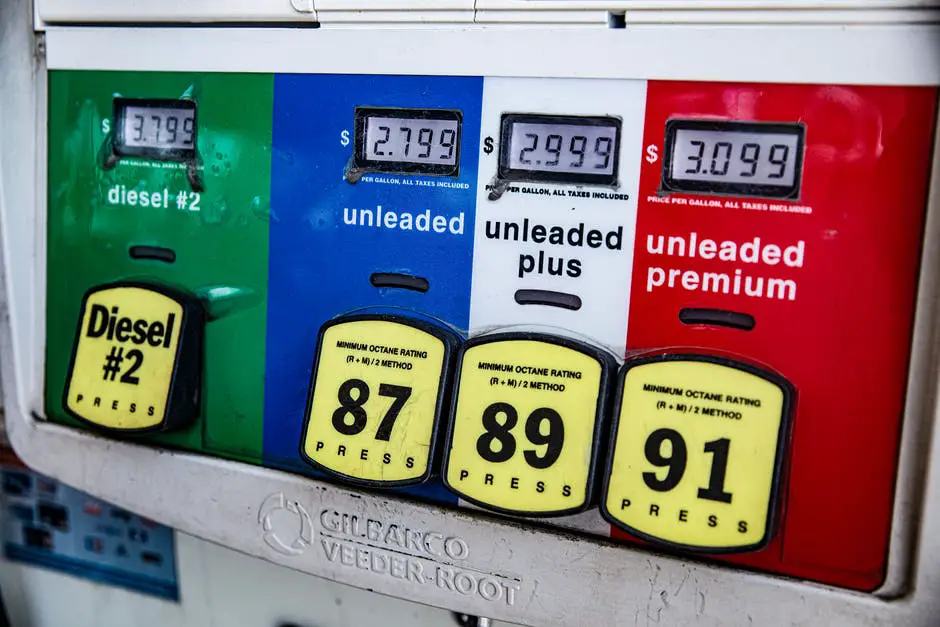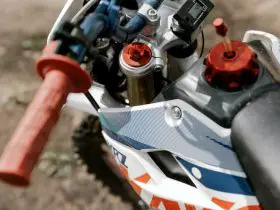The recreational vehicle market is rapidly growing globally and is expected to reach $11.95 billion by 2027. That’s right around the revenue of the popular rideshare industry! This shows just how in-demand utility terrain vehicles, or UTVs, already are and how they’re increasingly sought-after for work and recreational purposes. If you’re also interested in buying or upgrading a UTV, maybe you would even like to learn the difference between UTVs and ATVs, since you’ll have to make a key decision before starting your search. Choosing between gas vs diesel UTV is important as they both are excellent, but for very different reasons.
Below, we’ll go over what’s the difference between gas and diesel UTV, explain what each is primarily used for, and include some resources for further reading to help you in your research!
Table of Contents
Diesel UTV Pros:
- Reliable engines
- They last longer
- Have higher torque output
- Consume less fuel
- Fewer things to break
It’s not surprising for drivers to get nervous or pass up offers on gas engines that are nearing 200,000 miles. Diesel engines however can live on well beyond 500,000 miles. This is why diesel is the engine of choice for tough jobs like farming, construction, and transport.
Torque is more important than horsepower for towing, hauling, and pulling heavy equipment. Diesel engines might not be the fastest, but they certainly are powerful. Attach a trailer to a UTV and you’ll have maneuverability in a compact vehicle but with a strong engine.
Even if they’re not used professionally, many people with hobby farms or those that transport material inside a large property use diesel engines to get around. You’re able to get around for a lot longer on a diesel UTV and, carrying a heavy load while doing so.
Diesel engines consume less fuel than their gasoline-powered counterparts. On average, they can travel up to 35% farther per gallon. This isn’t to say that fueling up with diesel is cheaper as diesel fuel can cost the same, if not more, per gallon. But, it cuts down how often you’ll need to stop to fuel up tremendously.
There are even ways you can maximize the fuel economy on a UTV even more! That means more time enjoying your UTV and getting work done, and less time filling up.
Because of how diesel engines work, there are fewer things to break. They don’t use a spark to ignite the fuel and instead, they rely on compression. Because of this, there is no spark plug or spark plug wires to worry about.
Diesel UTV Cons:
- Loud engine noise
- Heavy engine vibrations
- Lack of availability in fuel
- Slower
- Warm-up time
Diesel engines are louder than gas engines. This can be challenging if you plan on taking your UTV to the trails. Many trails have decibel level limits that all vehicles must abide by. If you plan on using your UTV for work and will be on them for a while, you may need to wear headphones or earplugs.
Aside from the louder noise, a diesel engine also vibrates or shakes, while idling. Though newer engines have vibration and noise dampeners that have made huge improvements to these issues, if you’re going to be spending a lot of time on them throughout the day, it can be an issue.
If you suffer from range anxiety by looking at the fuel gauge, diesel might not be the best for you. Only 55% of fuel stations in North America offer diesel as an option. This can make finding places to fill up troublesome.
Due to their heavier weight, diesel engines are generally slower than gas engines. This means you’ll have a slower UTV. You’ll still be able to get around at decent speeds and have fun but if you like to keep it pinned on the trails at exhilarating speeds, you could be disappointed with diesel.
Diesel engines should only run at their optimal temperatures. The temperature is often detailed in the vehicle manual. This means you’ll need to start it up and let it run for a bit before riding.
This can be as short as 2-3 minutes. Those couple of minutes can seem a lot longer if you’re outside in cold or it’s very early in the morning.
Gas UTV Pros:
- Lighter
- More horsepower
- Comfortable noise levels
- Gas is readily available
- Smoother ride and idle
Gasoline-powered UTVs are popular choices for riding the trails, dunes, and racing.
Their lighter weight allows for easy transport if you’d like to tow it somewhere on a trailer. Gas engines give you the freedom to explore different trails, national parks, and wherever else UTVs are allowed, in a fun and different way.
These engines do weigh less but have more horsepower. This combination makes them perfect for thrill-seekers looking to ride fast. If you’re looking to keep going at those high speeds for longer, gas-powered UTVs can deliver.
The noise decibel level is much lower on gas-powered engines as well. This makes them a good choice for your ears, your neighbors, and in trails that have decibel level limits. If having the quietest UTV available is what you’re after, gas-powered ones are the way to go.
Fuel stations are commonly referred to and called gas stations. This is because gasoline and the three different octane ranges it’s offered in, is the most common fuel source at these stations. There is no need to have range anxiety with gasoline engines as it is readily available in North America.
Gas engines also offer a smoother idle time and ride overall. The vibration and shakes that plague diesel engines are practically non-existent in these engines. This makes for a much more comfortable time in the UTV so you can ride, play, or work without added stress on your body.
A smoother ride not only offers benefits for the driver but passengers as well. If you enjoy going out on a UTV with friends or family, they’ll certainly be thankful for a more comfortable ride. The added comfort can lead to more seat time on the machine as it’s enjoyable for all.
Gas UTV Cons:
- Could require more maintenance
- Less durability
- Expiration date
Gas-powered UTVs may seem cheaper upfront, but they can end up costing more in the long run.
This is because gas engines generally require more maintenance. They have more moving parts and components than diesel engines. There are more parts to suffer from wear and tear from usage.
This can add up in repair bills, cost of parts, and time put into the machine. Is the lower cost worth it if the machine spends more time sitting in the garage waiting to be fixed more than actually being utilized?
Because gas engines are less durable than diesel ones, you could go through two of them for every 1 diesel engine lifetime. For example, your gas engine gives out at 250,000 miles and you need to get a new engine or even get a whole other UTV. You may not have run into that issue with a diesel engine that can live up beyond 500,000 miles.
Gas also has a quicker expiration date. It can get stale if it sits for a long period of time. If you live anywhere where you won’t be riding your UTV for months at a time, the gasoline could get stale.
There are fuel stabilizers that help prevent this from happening. Though they are generally not very costly, it’s still more work. Purchasing fuel stabilizers and prepping the UTV for long months of sitting is an added cost and another thing to think about.
Gas vs Diesel UTV
A deciding factor in the diesel vs gas UTV debate is, what do you want to use it for? Find out what you want to get out of a UTV first, and then see which fits more into what you want.
If you’re looking for a work-purposed, heavy-duty machine, a diesel UTV would probably be best. The longevity of the engine and its power make it a great machine to help with your tasks, still offering a fun ride while doing so.
If you’re looking for a trail tearing, dune drifting, thrill-seeking machine, a gasoline UTV would be your best bet. The speed it offers, along with its portability and comfort make this option the best for recreational use.
Have an idea of where to go but looking for more? Check out the best UTV brands of 2021 and our other UTV specific blog posts.









